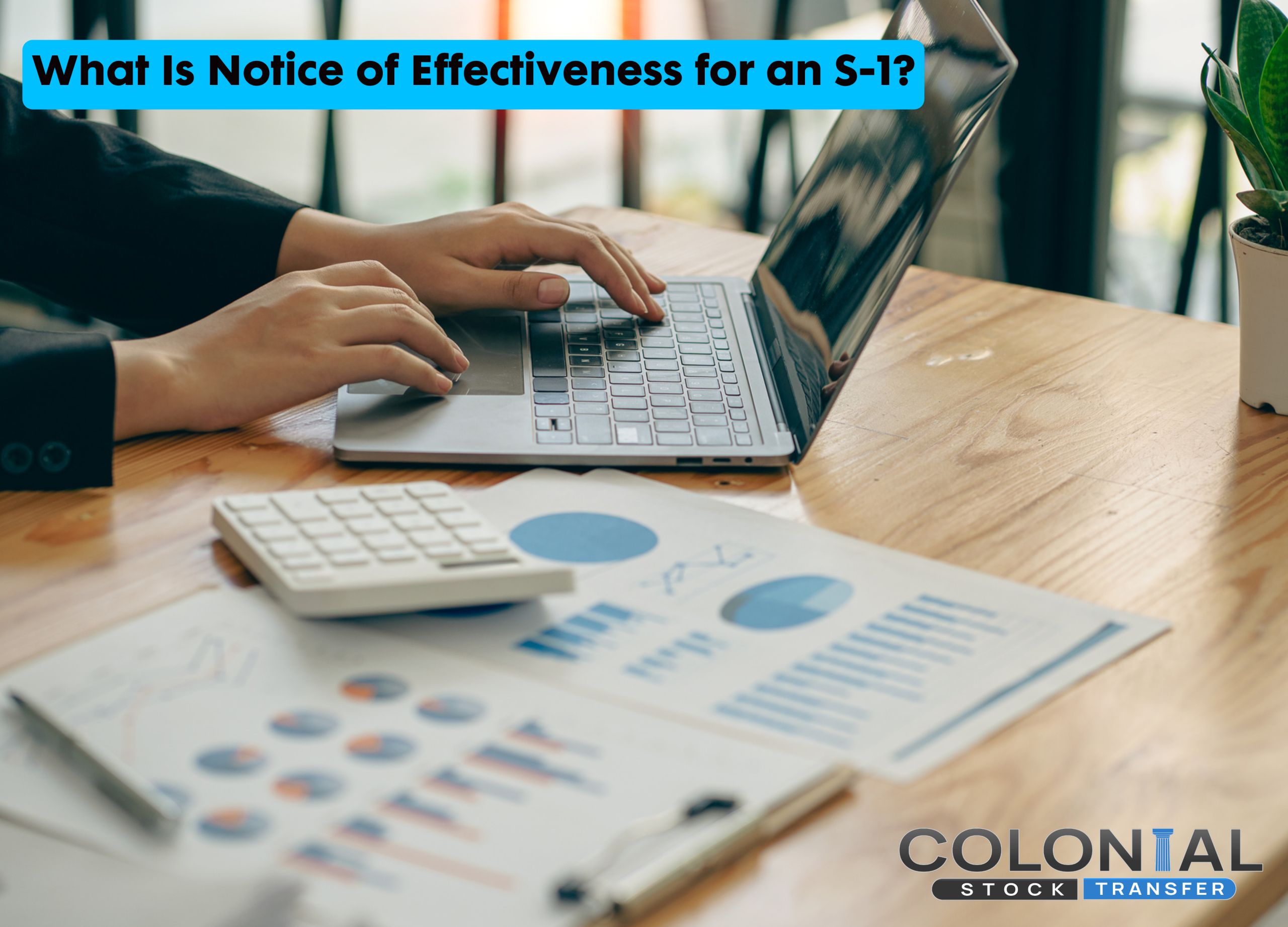
When a company files an S-1 registration statement with the SEC, it’s laying the groundwork to offer securities, like stocks, to the public. A notice of effectiveness from the SEC is a green light, signalling that the S-1 filing is complete and complies with all requirements. This notice is crucial because it allows the company to start selling its shares to investors. Without it, the company must wait to proceed with its Initial Public Offering (IPO) or other securities offering.
Definition of Notice of Effectiveness
A notice of effectiveness is a formal declaration by the SEC that a company’s registration statement is complete and available for public viewing. The SEC’s thorough review shows that the company has met all of its legal and regulatory requirements. This notice doesn’t imply endorsement by the SEC but confirms the company has disclosed all material information needed for investors to make informed decisions.
For investors and the company alike, this notice of effectiveness demonstrates transparency and regulatory compliance. The SEC’s notice means the documents have passed scrutiny and contain the data necessary for the public to understand the offering fully.
Significance of SEC Effectiveness
SEC effectiveness means that a company can turn its attention from regulatory approval to the actual sale of securities. This milestone is often the result of months or years of preparation, including audits, legal reviews, and revisions to the S-1 to meet SEC standards. Even so, the company must continue to adhere to the continuous reporting requirements set forth by the SEC.
Duration of S-1 Effectiveness
An S-1 registration statement remains effective until the company decides to withdraw it or the SEC declares it stale or outdated. However, to maintain its effectiveness, the company must continue to file periodic reports and disclosures, such as 10-Ks and 10-Qs, to keep the public informed about its financial health and business operations. The continuous reporting ensures that the company is providing sufficient disclosure in compliance with the Exchange Act and SEC reporting requirements.
The effectiveness period does not have a set expiration but is contingent on the company’s adherence to ongoing reporting requirements. If a company fails to keep up with these obligations, or if significant changes occur in its business or financial situation, the S-1 can become stale, prompting the need for a new or amended filing.
Resale of Stock Through Effective S-1
Once the SEC gives notice of effectiveness to an S-1, the company can put its shares on the market. This allows original investors and insiders to resell their holdings. This liquidity is important for early investors and employees who have supported the company’s growth. The effective S-1 facilitates this process by creating a regulated and transparent method for the resale of shares.
This resale capability through an effective S-1 is especially important for companies that may not be ready or willing to go through a full IPO. It allows them to raise capital more flexibly and on their terms, without the pressures and spotlight of an IPO.
Staleness of an S-1 Registration Statement: What To Know
An S-1 registration statement can become stale if the company’s financial statements become outdated or because of other stipulations, typically around 9 months to year. If the company has not updated its filings with recent financial data, it may need to submit new filings to the SEC. This staleness can delay offerings and complicate the resale of stock.
To prevent an S-1 from going stale, companies must continuously monitor their reporting and ensure they file post-effective amendments to keep the offering open. Staleness can be a significant setback for companies looking to capitalize on market opportunities quickly, so staying current is crucial for maintaining a valid and effective S-1.
This table discusses the S-1 Notice of Effectiveness requirements:
| Aspect | Description |
| Notice of Effectiveness | SEC’s approval of an S-1 filing, allowing the company to proceed with securities sales. |
| Significance of SEC Effectiveness | Indicates regulatory compliance and the company’s readiness to enter public markets. |
| Duration of S-1 Effectiveness | Indefinite as long as the company continues to meet SEC reporting requirements. |
| Resale of Stock Through Effective S-1 | Enables shareholders to resell their securities in a regulated manner. |
| Staleness of an S-1 | Occurs when financial statements within the S-1 become outdated or typically around 9 months based on certain stipulations, requiring new post-effective amendment filings to maintain validity. |
*Consult with your legal counsel for clarification and guidance. We do not offer legal advice.



